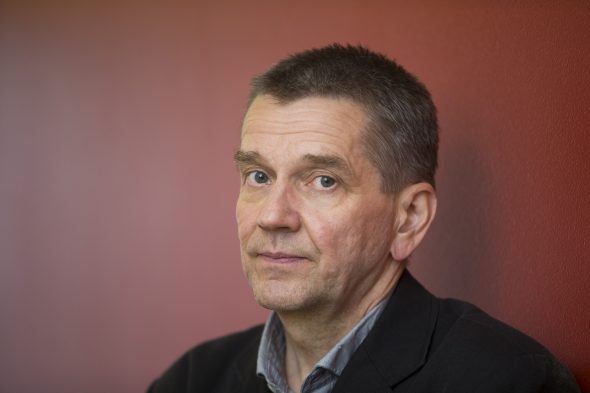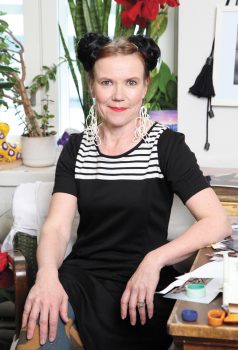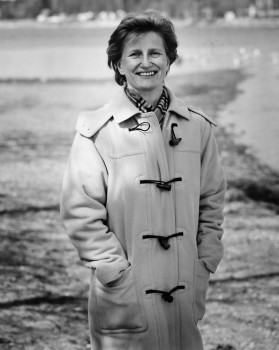Search results for "2011/04/2010/05/song-without-words"
Intelligent living
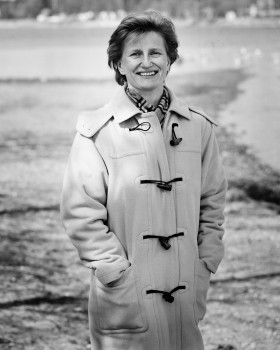
Minna Lindgren. Photo: Ville Palonen.
In Ehtoolehdon tuho [‘The decline of Twilight Grove’, Teos, 2015), the final novel in a trilogy about life in an assisted living home, employing human staff has become too expensive and the old folk are part of a pilot project in which they are cared for by electronic devices, monitors, cameras, ‘smartwalls’ and cleaning robots: ‘there was intelligence everywhere, masses of it, just a hiccup and something terribly intelligent would happen.’
The aged lady residents don’t like their new life, but they’re resilient; they’re not about to let the new technology defeat them…
Minna Lindgren’s mordantly satirical, often hilariously funny writing has earned her a wide readership. Translations of the trilogy are soon to appear in English, German and French.
![]()
An excerpt from Ehtoolehdon tuho [‘The decline of Twilight Grove’, Teos, 2015). Review by Soila Lehtonen
‘You’re 97 today! Your wakeup call service today congratulates!’
As if she wouldn’t have remembered. Ninety-seven was almost a hundred. She and Irma had decided that they would refuse to turn one hundred. It would only make trouble. One lady, in the bottom apartment of the A staircase, had received an invitation to the health centre on her birthday. Apparently all five-year-olds were called in for monitoring of their motor and psychological development, and when this lady turned 105, the computer system thought she was a toddler. The computer didn’t recognise numbers over one hundred. Siiri thought the lady should have kept the appointment; she would have done, for the tests were fun. You had to draw a triangle and walk along a straight line. Not that easy for someone of 105. But the lady didn’t go, she just made a terrible fuss about it and complained to everyone, until she died before her complaints reached the right official. More…
Poems
31 March 1979 | Archives online, Fiction, poetry
Poems from Lähdössä tänään (‘Leaving today’, 1977) Introduction by Jouko Tyyri
1
‘The wind’s speaking.’ If the wind were really speaking
could we endure its words
so void, flinty, so groping?
Inside them
they have
salt, horror,
mania: a long-drawn black speechless
roller that wipes the coast clean
of houses, woods, junk. It swashes
your eyes. If I’d had some
feeling. Or thought. If
I was something. If I was I.
It’s gone.
There’s nothing here. Only a draught.
The air moving back and forth, soon to drop.
2
Orlando di Lasso's melodies
airy, without a touch of soil
a little dust on
as much as might be on a butterfly's wing
only just so much
Orlando himself, four hundred years
remoulded into loam, coalesced with dust
just like you, you, just like you More…
A long dream
9 October 2009 | Fiction, Prose
A short story from Jälkikasvu (‘Offspring’, Otava, 2009)
‘I was eating a late breakfast, without a care in the world, when it happened.’
He snaps off the recorder. He has said the same thing three times now, but he always loses his train of thought right there. Why is it so difficult to continue? In his mind, the next part feels quite clear, but the words simply won’t come out of his mouth. He ought to say that his wife left him yesterday, on the twelfth of February, at 10:48 AM, following a three-minute fifteen-second briefing. More…
A toast before dying
30 June 2005 | Archives online, Fiction, Prose
Extracts from the novel Voin jo paljon paremmin. Tšehov Badenweilerissa (‘I already feel much better. Chekhov in Badenweiler’, Loki, 2004). Introduction by Hannu Marttila
I went to meet them Friday and I did not plan to take other patients that week. They had a small but comfortable room with striped wallpaper.
The Russian was a tall man, but stooped. It soon became apparent that his wife spoke fluent German because she was of German descent. That made it much easier to take care of things.
Of course I knew who the patient was. I have always enjoyed literature and other forms of art. I could play several pieces rather well on the piano. When I was younger I had even written a couple of stories set in the mountains, though I had never offered them for publication. As for Chekhov, I had read a couple of his stories that had just come out in German translation, and I had liked them quite a lot in a way, even though they of course reflected that characteristic Russian nature, with its vodka and untidiness.
The patient’s wife seized both my hands when I entered. It was a bit confusing, but not necessarily unpleasant.
‘Our name is Chekhov. We have come from Russia,’ the woman said in a strong, carrying voice. ‘I trust you’ve been told?’ More…
I hate your Face(book)
5 May 2009 | Columns, Tales of a journalist

Illustration: Joonas Väänänen
Just how ‘free’ is free speech? Pay a visit to any internet chatroom, and you’ll see. In the first column of a new series called ‘Journalist’s tales’, the media critic Jyrki Lehtola investigates intolerance on the internet
First there was utopia. Then came people, and utopia suffered.
As with all new inventions, from electricity to the atom bomb, internet social networks were supposed to make our lives better. They were supposed to give us license to network, to participate, to get to know each other, to get reacquainted, to flirt, to find an extramarital lover and to be connected to as many people as possible in as many inconsequential ways as possible. More…
The train
31 March 1995 | Archives online, Fiction, Prose
Extracts from the novel Koe (‘The experiment’; WSOY, 1994). Interview by Tuva Korrström
In the morning a wild rose tapped beseechingly at the window, the wind sighed in the shaft of the chimney, the entire house creaked, pregnant with so great a longing that they had to awaken.
And as soon as they began to speak to each other, the house settled.
‘I should like to see the train,’ Sari said.
‘Why?’
‘Because that is the reason why I am here.’
‘I didn’t plan it like that,’ Kari said. More…
Animal magic
3 June 2014 | Extracts, Non-fiction
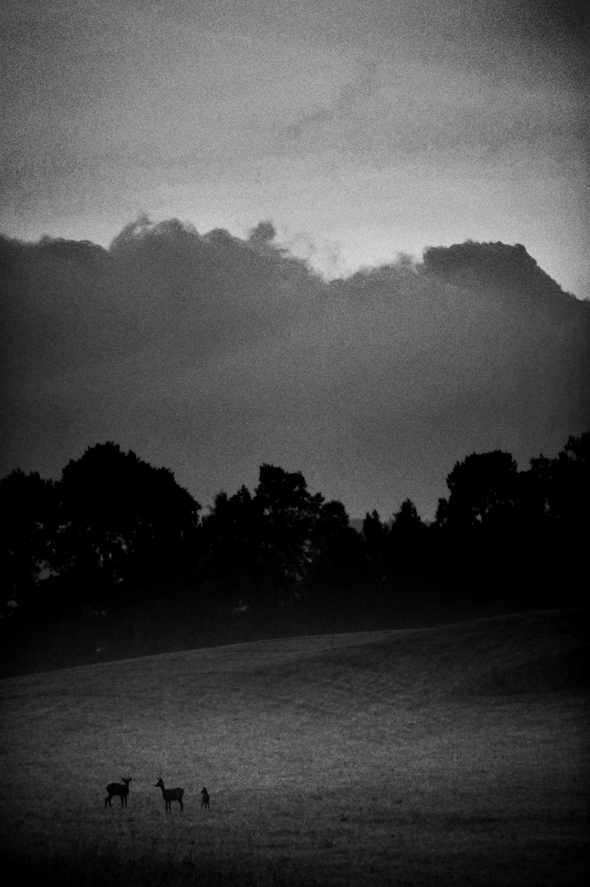
Roe deer, Sweden. Photo: Mats Andersson
A day in the life of an elk, of a lynx? Nature photographers venture into the depths of forests, in pursuit of the inhabitants – predator and prey, mythical and real. Photographs from Kohtaamisia (‘Encounters’), by Mats Andersson and Heikki Willamo, text by Willamo (Maahenki & Musta Taide [Black Art], 2014)
The feelings in our dreams. They well from depths – from those layers of awareness that the mind does not shackle. In sleep we handle and organise the events of our lives in a way which is impossible when awake, when we are conscious of ourselves and our limitations. That is why animals can come into my dreams as friends, equal partners, like me, and therefore I so often dream of having their abilities and skills.
When awake we think all the time. We think about past events and worry about the future or dream of something better. Very seldom do we live in the moment. Photographs are passing moments, often only a thousandth of a second long, but sometimes lasting minutes or even hours. In finished photographs the beholder can see much more – he adds his memories or dreams of the future. The picture-taking moment vanishes, something else comes in its stead. More…
Dinner with Marie
30 June 2008 | Archives online, Fiction, Prose
Extracts from the novel Marie (WSOY, 2008). Introduction by Tuomas Juntunen
For once, Marie decided to plan a dinner without the same old roast beef, boiled potatoes, peas, red wine and berry kissel. And particularly no game. The thought of rabbit reminded her of the hunting trip to Porpakka, the hounds puking up rabbit skins onto the parquet floor, the smell of singed birds, the feathers that turned up even weeks later in a corner of the kitchen, the buckshot in the goose that broke her tooth. Mind you, she had to admit that brown sauce was quite good, especially as an aspic. She had tasted a spoonful once the morning after it was made, when Martta had gone out to buy milk and Marja was cleaning the drawing room, and then Martta had come back quite suddenly, and Marie had panicked and swallowed it the wrong way and had a fit of coughing. ‘Good heavens,’ Martta had said, ‘what’s the matter? I just came back to get my purse. I forgot it on the sideboard.’
The true reason for the plan was that she wanted to show them what a real French formal dinner was like, how much better it was. She planned the menu secretly for months, first in her mind, then in writing, at her bedroom dressing table – the only place she had to herself, although the door wouldn’t lock – at first on wrapping paper, which she later burnt in the tiled stove in the dining room when no one was home. More…
Get out of my Face(book)!
23 June 2010 | Columns, Non-fiction, Tales of a journalist
 Much is made of the importance of Facebook and the other social media. But what are they, asks journalist and self-confessed internet cynic Jyrki Lehtola in his regular ‘Journalist’s Tales’ column; and, more important, is there any point to them?
Much is made of the importance of Facebook and the other social media. But what are they, asks journalist and self-confessed internet cynic Jyrki Lehtola in his regular ‘Journalist’s Tales’ column; and, more important, is there any point to them?
This journal and this text appear only on the internet, and you can comment upon the elegant style of this text, as well as its fascinating content, at the bottom of the piece. If worst comes to worst, the apathy it arouses can even give rise to debate.
Does all that mean that I’m a part of… the social media? And if so, could someone tell me what social media mean and how I can get out of here? More…
Coming up…
11 April 2013 | This 'n' that
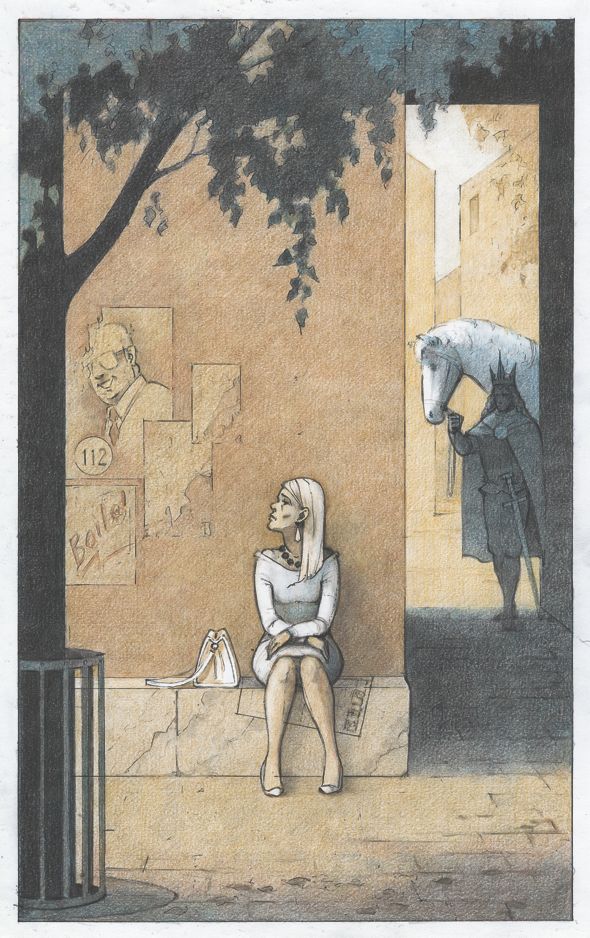
Illustration: Mikko Metsähonkala
‘Just before the meeting Ludwig chickened out. In the ad he had bragged that he was a “sporty male with a sense of humour”. Would Patsy accept his illiteracy, brutal table manners and cruelty towards the peasants?’
One picture, few words: Mikko Metsähonkala’s artwork creates a moment in a universe – recognisable or completely strange – providing it with a laconic textual subtext. We feature some of his stories published in Toisaalta / (P)å andra sidan / In Other Wor(l)ds.

